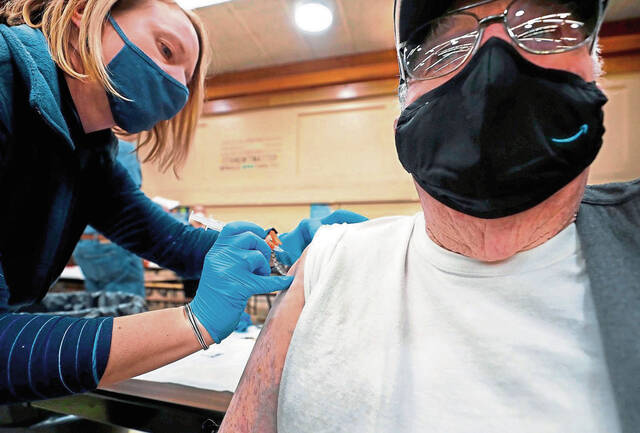As an independent pharmacist, I’ve made a living advising people on the benefits of both curative and preventative medicines. However, never in my career have I seen more attention paid to the importance of mass vaccinations.
For the better part of two years, we’ve been hyper focused on creating and distributing the covid-19 vaccine around the globe. At my South Hills pharmacy alone, we’ve been working 80-100-hour weeks running vaccination clinics to aid the distribution effort. And we’re proud to do so.
Unfortunately, this increased attention on one vaccine has triggered an unwanted ripple effect in our health care system resulting in lower immunization rates for other preventable illnesses. Even more concerning — we’re on the brink of leaving one of our most vulnerable populations, our community’s seniors, at high risk for serious infection this flu and pneumonia season.
Pneumococcal disease, which is spread through coughs, sneezes and close contact, is one of the leading causes of hospitalizations for seniors each year. In the U.S., it is estimated that more than 150,000 hospitalizations from pneumococcal pneumonia occur each year, and about 5-7% of those who are hospitalized from it will die. For older adults, the death rates are even higher.
This summer, the FDA gave approval to updated versions of several manufacturers’ pneumococcal vaccine. However, the CDC’s Advisory Committee on Immunization Practices, or ACIP, must also review the vaccines and provide recommendations for them to be widely distributed and covered by insurance.
A vote on the pneumococcal vaccines is expected in October, but for millions of older Americans and those living with chronic conditions that put them more at risk for contracting pneumococcal disease—that’s too long to wait. Protection against pneumococcal disease is important every year, but more so this flu and pneumonia season as experts are predicting it to be more serious than 2020, now that social distancing and mask wearing is becoming less common.
Quick action from ACIP will provide improved access to the best vaccines on the market, but it is not the only move leaders can make to prioritize our seniors. The Protecting Seniors Through Immunization Act, which is currently in the U.S. House of Representatives, will ensure that Medicare Part D beneficiaries won’t face higher out-of-pocket costs for ACIP-recommended vaccines. Notably, many individuals enrolled in a commercial plan or Medicare Part B pay nothing for vaccines and, consequently, vaccination rates within these plans are higher.
This last year has humbled us all. It taught us how just one illness can completely upend our public health system. And after seeing what the world looks like without one vaccine, can you imagine what it would look like without any? Without the vaccines we’ve come to rely on year after year?
In my role as a community pharmacist, I take pride in protecting my region from vaccine-preventable disease. I also believe my customers should hold me and other health care organizations accountable for protecting their best interest. And in the case of the senior populations who utilize my services day in and day out, I stand for them today.
I urge our lawmakers and advisory councils to prioritize these efforts. They are two critical and missing links in the chain of care for older adults.
Christopher Antypas is the co-owner and pharmacist of Asti’s South Hills Pharmacy in Castle Shannon.








